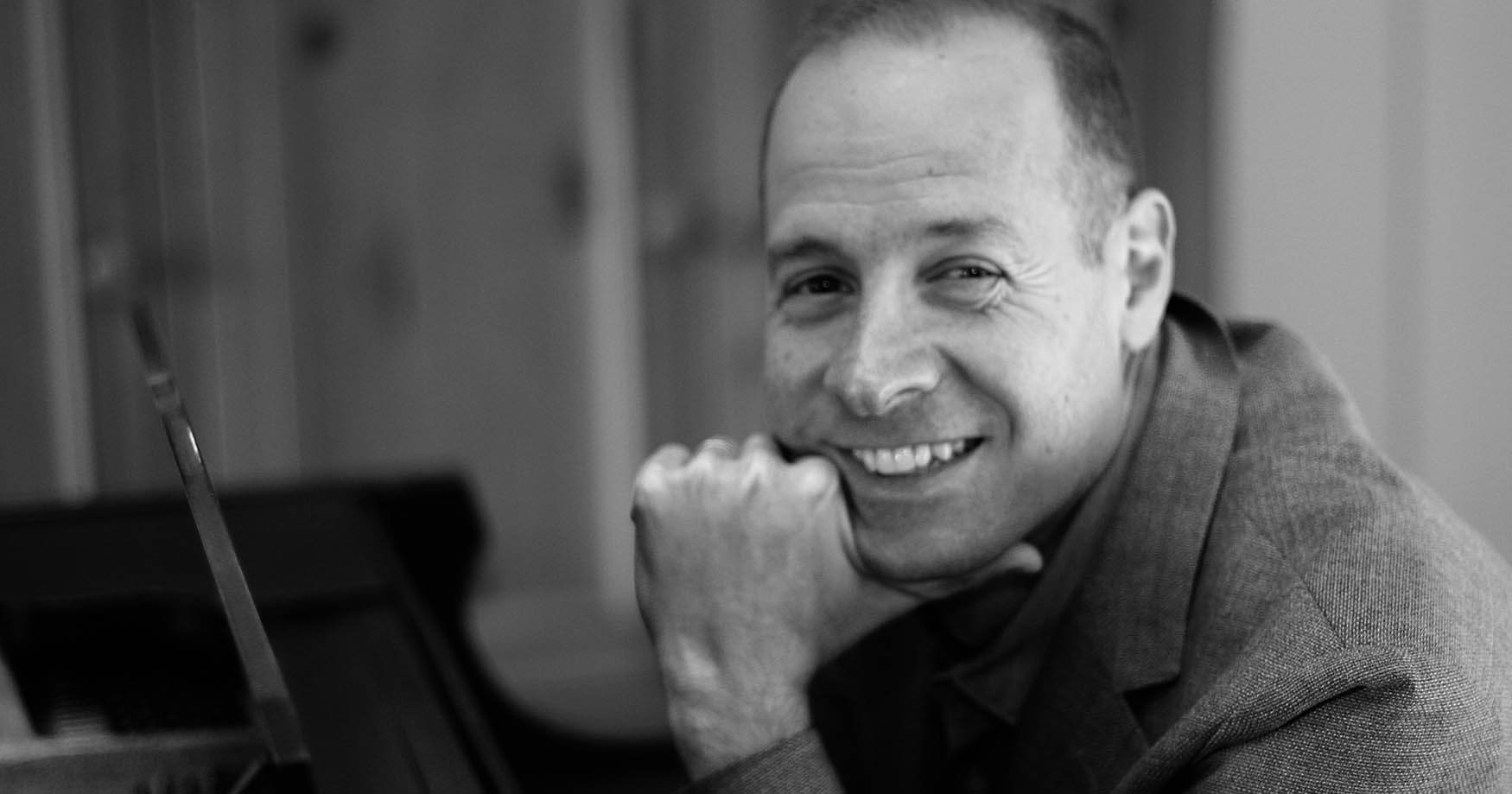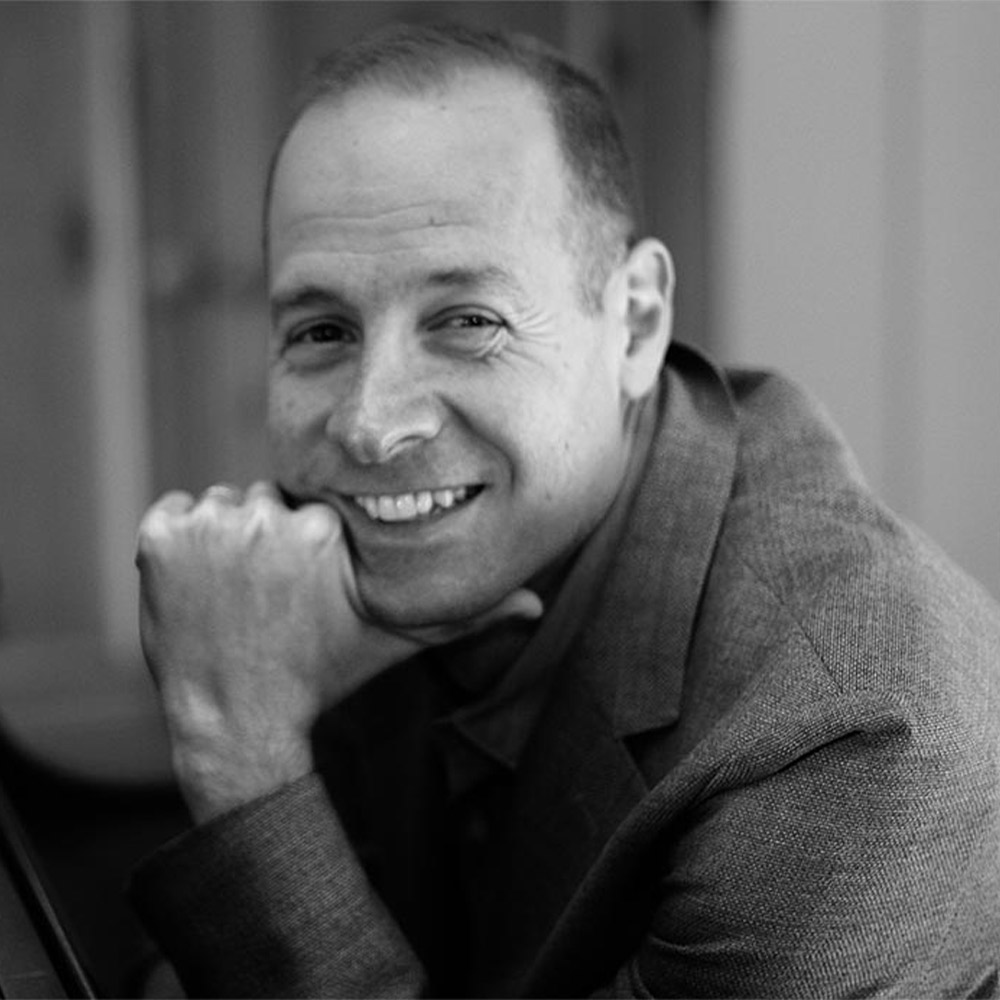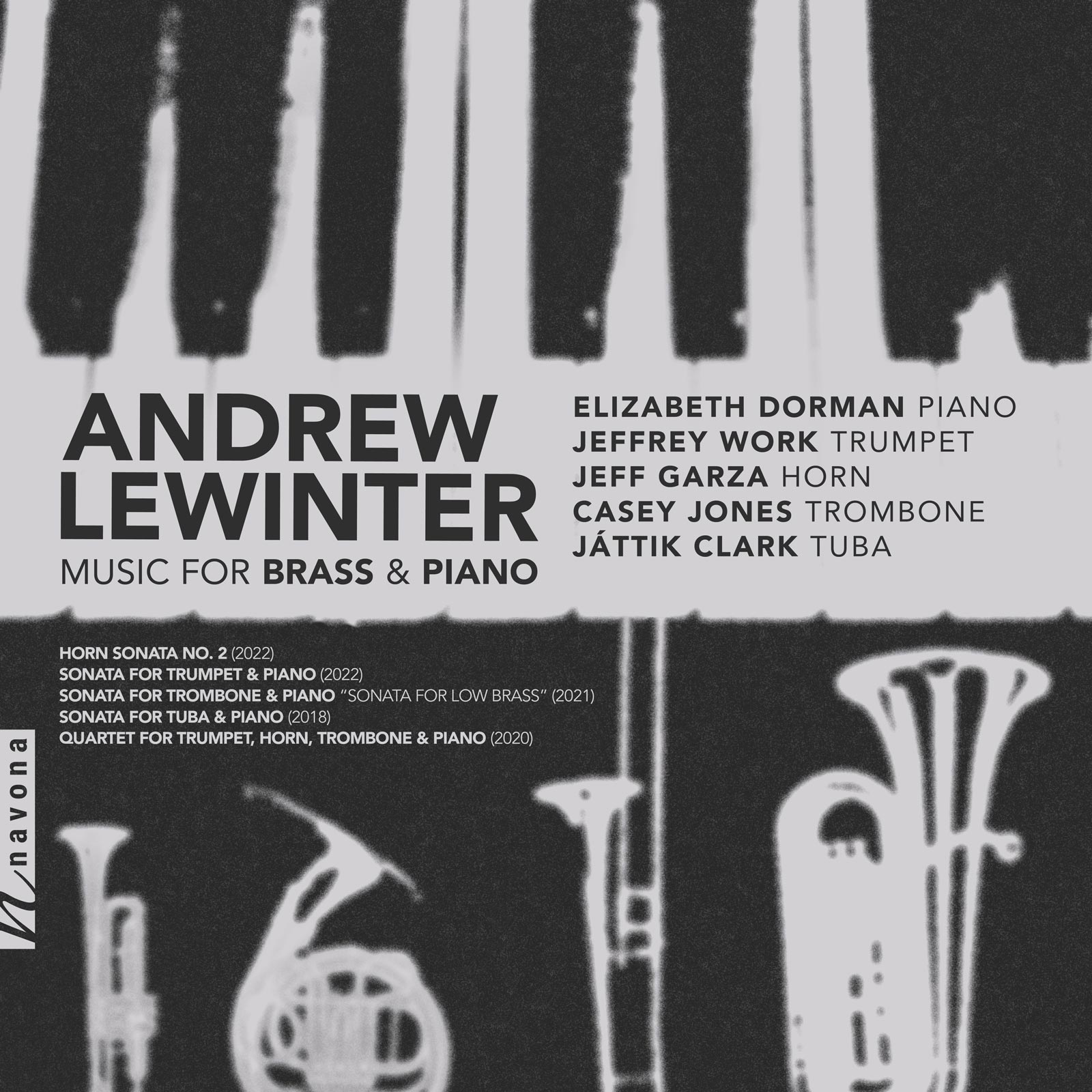
Sonatas for brass and piano are a tricky thing to pull off; in consequence, they are few and far between. Andrew Lewinter, himself a long-time orchestral horn player and soloist, has decided to add to the repertoire on MUSIC FOR BRASS AND PIANO: crafting four different sonatas for piano and each instrument of the brass family, and concluding with a dazzling piano quartet.
Today, Andrew is our featured artist in the “Inside Story,” a blog series exploring the inner workings and personalities of our composers and performers. Read on to learn about his early morning creative flow and how he finds endless value in music from great composers of the past…
If you weren’t a musician, what would you be doing?
I already do something else in addition to composing music. I’m a lawyer who represents victims of employment discrimination and people who weren’t paid for the work they did (i.e. labor and employment law). That work uses a completely different part of my brain and is fulfilling in an entirely different way than composing music.
What musical mentor had the greatest impact on your artistic journey?
I was an orchestral horn player and soloist for about 14 years of my life, but I’ll answer this as a composer, rather than as a performer. (I can point to mentors on the horn, but they aren’t relevant to my work as a composer.)
I don’t have any living musical mentors, but I study the compositions of the greatest composers of the past. They are my guides. The list of “mentors” is long, but if I had to name one, I would probably choose Brahms. Brahms’ use of developing variation, in which musical ideas are in a constant state of variation, informs the way that I try to develop my own ideas. I have the best composition teachers a person could have! They are all dead, but there is so much to learn from studying their works.
Take us on a walk through your musical library. What record gets the most plays? Are there any “deep cuts” that you particularly enjoy?
I probably listen to (1) the Bach Cantatas (there are over 200), (2) Beethoven piano sonatas, and (3) Brahms’ chamber music more than anything else. Of course, I listen to a wide spectrum of music and enjoy music of the past century, too, but the three categories above get the most plays. Consequently, that music has the greatest impact on my compositions.
What emotions do you hope listeners will experience after hearing your work?
I hope that the music I wrote will reflect as wide a spectrum of emotion as possible: Joy, tranquility, enrapture, to name a few.
Where and when are you at your most creative?
I compose a lot of music before the sun comes up. I’m a better composer before life’s many distractions clutter my mind (the news, text messages, telephone calls, etc.). At 5 a.m. I’m able to focus, and usually rework or delete what I wrote the previous evening. I suspect that I am subconsciously thinking critically about the work I did the day before while I’m still in bed.
What are your other passions besides music?
I get a lot of gratification from helping people who need the help and using my legal skills to make the world a better place to the extent that I can.

Before turning his attention to composition, Andrew Lewinter had a long and varied career as an orchestral horn player and soloist. As a composer, Lewinter has a decidedly tonal and neo-romantic style that is often very contrapuntal and always emotionally gripping. His works include sonatas for each of the brass instruments and piano, a quartet for trumpet, horn, trombone and piano, quintets for both horn and string quartet and oboe and string quartet, a woodwind quintet, a string quartet, and a trio for oboe, horn, and piano, among other works scored for a variety of chamber ensembles. Lewinter’s compositions have been widely performed and recorded, and are available on Navona Records and Ablaze records.

